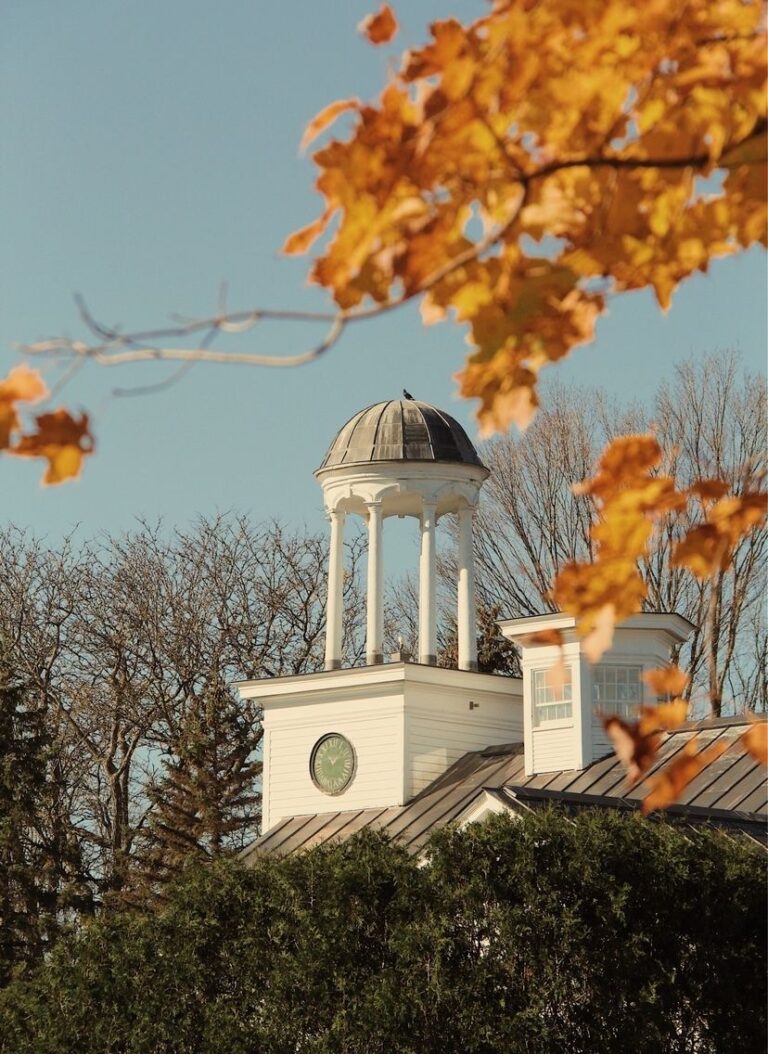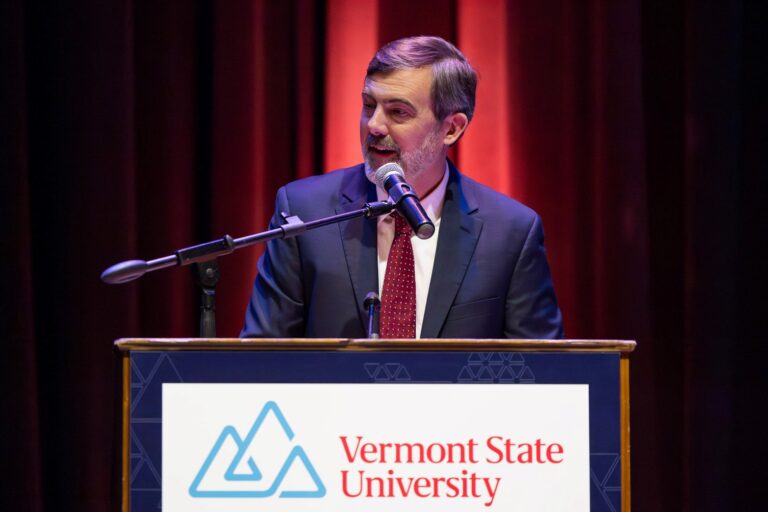Welcoming us back:Convocation features music and messages of hope from several speakers
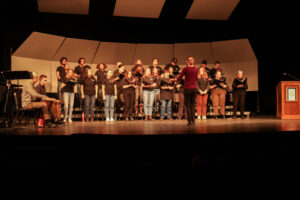
Jan. 30 marked the second Convocation as a unified Vermont State University.
With opening words from Cathy Kozlik, dean of the School of Business and Professional Studies, followed by remarks from new VTSU President David Bergh, among others, Convocation signified the start of the Spring 2024 semester.
Kozlik began by recognizing the prior year’s failure to include the NAACP in the celebration of Martin Luther King Jr, saying, “We heard and recognize our omission, and we apologize for the hurt felt by these significant members of the Castleton family.”
She went on to discuss the tremendous change undergone in the past six months, comparing the merging of VTSU’s legacy institutions to that of a “blended family.”
“Like children thrust together into a new house, we don’t want to share our room; we don’t want to give up our place at the dinner table; those darn half sisters and brothers are taking over our closets and maybe even taking too long in the bathroom. But thankfully, we are now finding ways to embrace our new extended family,” said Kozlik.
Following the introduction of new international students were speeches from respected members of the community and performances from the University Chorale.
Castleton Faculty Assembly Representative Andre Fleche said, despite “adjusting to new roles, modalities, and ways of business…the ‘Castleton Way’ has not disappeared, but it is our obligation to keep it that way.”
He encouraged new students to get involved however they can and said he is happy to field any concerns students may have.
The University Chorale went on to express feelings of resilience and jubilation through their renditions of “Oye,” “Lift Every Voice and Sing,” “We Shall Overcome,” and the “Alma Mater.”
Student Government Association President Perry Ragouzis spoke about the campus’ ability to band together and “elevate” through recent trials.
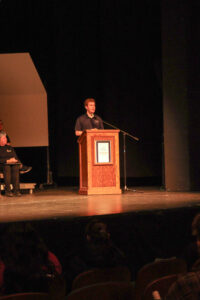
“This characteristic, this potential, is something I am confident that we need now more than ever,” said Ragouzis, naming a few of these instances of perseverance.
“I have watched as this community has come together and work to address food insecurity. I have watched as our students choose to make their voices heard in respectful, tasteful ways on issues that matter. I have watched as our campus invites difficult conversations about race, sexuality, and nationality. I have seen what it means to love for more than just oneself… I have felt what it means to be a Spartan,” he said.
President of the National Association for Advancement of Colored People (NAACP) Kayon Morgan spoke highly of the organization’s advancement since its start at Castleton four years ago.
“When we first started, we were a team of three, and that is why as president, my main goal was to further and increase student leadership in the organization,” she said, adding that their chapter is “the most diverse executive board at Castleton…[not] only by the way we look, but our values, our backgrounds, our ideas, our cultures, and our identities.”
“I have seen what it means to love for more than just oneself… I have felt what it means to be a Spartan.”
–Perry Ragouzis
Morgan provided background on the NAACP’s significance as the “oldest and boldest civil rights organization in the U.S., and in the world.”
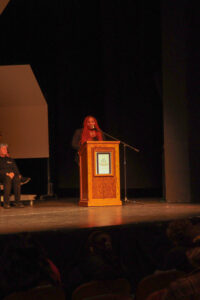
Established on Feb. 12, 1909, Abraham Lincoln’s birthday, to address lynchings in the U.S., the NAACP has introduced near 200 anti-lynching bills and none of them passed until the Emmett Till Anti Lynching Act in Feb. 2022.
They have fought to end segregation in public and private schools, discriminatory poll taxes and literacy tests, anti-interracial marriage laws, and more, Morgan pointed out. Two feats of their influence were the Civil Rights Act of 1964 and the Voting Rights Act of 1965.
“But just as the emancipation proclamation did not immediately bring freedom, the political gains do not mean that injustice has been vanquished,” said Morgan. “Therefore, I am honored to be part of this organization, honored to serve as president and vice president of the New England Compliance Youth and College Division in the capacity I do, and even more honored to be a part of the fight to end racial inequality.”
Newly elected President David Bergh concluded Convocation with his remarks.
Commenting on the boatload of changes made last semester, Bergh said he would like to “bring an opportunity for us all to catch our breath.”
He is excited about the high levels of student involvement, living in a post-Covid world, and the 86 percent of 2022-2023 first-years that returned this year.
“Let’s try to make this place a model of what society and the nation should be like,” said Bergh.

